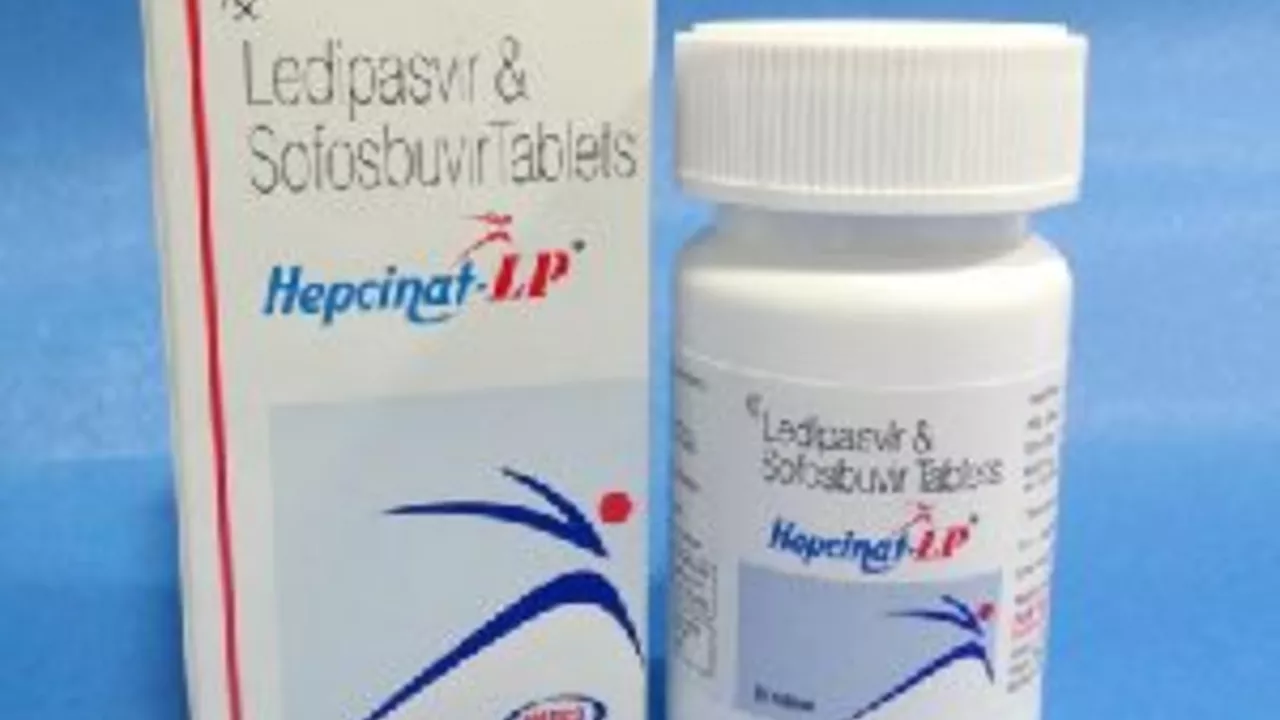Ledipasvir — what you need to know right now
Ledipasvir is an antiviral drug usually given together with sofosbuvir in a single pill (brand name: Harvoni). It targets hepatitis C virus (HCV) and has helped many people clear the infection without interferon. If you or someone you care for is starting ledipasvir, the basics below will help you follow treatment safely and get the best result.
Quick facts
Ledipasvir blocks a key HCV protein so the virus can't copy itself. It's most often used for HCV genotype 1, but doctors may use it for other types too. Treatment length commonly runs 8 to 12 weeks, though some people need longer. Your doctor decides the exact plan based on viral load, liver health, and past treatments.
Common side effects are mild: headache, tiredness, and nausea. Serious reactions are rare, but you should contact your provider for new or worsening symptoms like jaundice, severe fatigue, or shortness of breath.
Practical tips for taking ledipasvir
Take the pill once a day, at about the same time. You can take it with or without food unless your doctor tells you otherwise. Missing doses makes treatment less likely to work, so set a daily alarm or use a pill box.
Watch for drug interactions. Ledipasvir's levels can drop if you take strong acid reducers or certain herbal supplements. Avoid St. John's wort and tell your clinician about antacids, H2-blockers, or proton pump inhibitors — timing matters. Some heart medicines (like amiodarone) and specific anticonvulsants need special attention. Always run a full drug list by your provider or pharmacist.
If you have bad kidney disease, mention this up front. Sofosbuvir (the partner drug) can be hard on kidneys at advanced stages, so your doctor may pick a different regimen.
Keep follow-up tests. Your team will check HCV RNA before, during, and after treatment. The key milestone is SVR12 — no detectable virus 12 weeks after finishing therapy. That result usually means the infection is cured.
Avoid alcohol while you treat active liver disease, and get vaccinated for hepatitis A and B if you’re not already immune. If pregnancy or family planning is relevant, ask your clinician: ledipasvir/sofosbuvir decisions sometimes link to pregnancy safety and other meds like ribavirin, which is harmful in pregnancy.
Want reliable info? Ask your hepatologist or pharmacist for written guidance tailored to your health. If you’re checking online, stick to reputable sources or drug leaflets. If you notice unusual side effects or have trouble getting medication, call your clinic early — small problems are easier to fix than delayed care.
Need more on drug safety, pharmacies, or how meds interact? Browse our site sections on online pharmacy safety, common drug interactions, and practical patient tips to get clear, usable advice.

- Jul 6, 2023
- SkyCaddie Fixer
- 7 Comments
The History and Development of Ledipasvir
In my exploration of the history and development of Ledipasvir, I've discovered its significant role in healthcare. Initially developed by Gilead Sciences, Ledipasvir is primarily used in combination with another medication, Sofosbuvir, to treat Hepatitis C. It has revolutionized the treatment of this disease since its approval by the FDA in 2014. The development process was complex and required extensive research and testing, not to mention the significant investment. It's fascinating to see how this drug has evolved and impacted the medical field.
